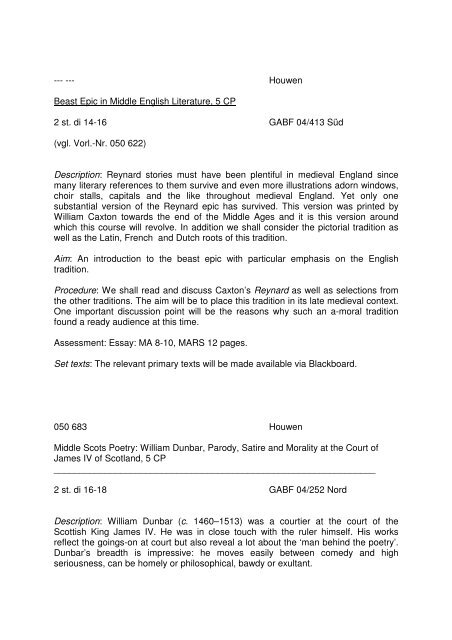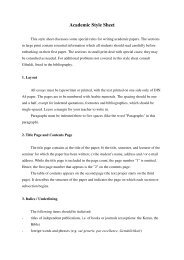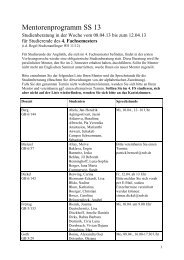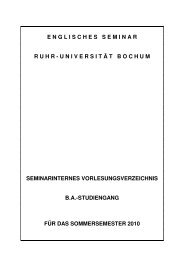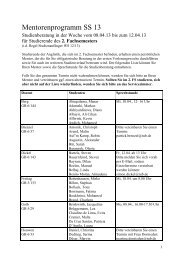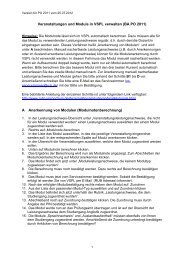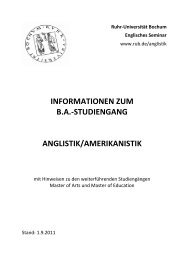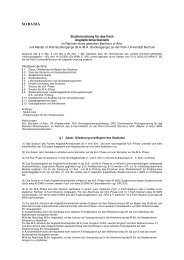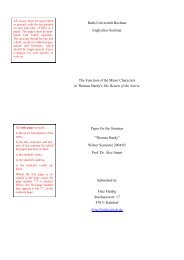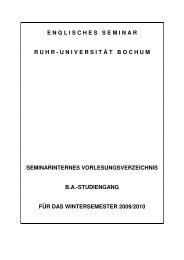Englisches Seminar - Ruhr-Universität Bochum
Englisches Seminar - Ruhr-Universität Bochum
Englisches Seminar - Ruhr-Universität Bochum
You also want an ePaper? Increase the reach of your titles
YUMPU automatically turns print PDFs into web optimized ePapers that Google loves.
--- --- Houwen<br />
Beast Epic in Middle English Literature, 5 CP<br />
2 st. di 14-16 GABF 04/413 Süd<br />
(vgl. Vorl.-Nr. 050 622)<br />
Description: Reynard stories must have been plentiful in medieval England since<br />
many literary references to them survive and even more illustrations adorn windows,<br />
choir stalls, capitals and the like throughout medieval England. Yet only one<br />
substantial version of the Reynard epic has survived. This version was printed by<br />
William Caxton towards the end of the Middle Ages and it is this version around<br />
which this course will revolve. In addition we shall consider the pictorial tradition as<br />
well as the Latin, French and Dutch roots of this tradition.<br />
Aim: An introduction to the beast epic with particular emphasis on the English<br />
tradition.<br />
Procedure: We shall read and discuss Caxton’s Reynard as well as selections from<br />
the other traditions. The aim will be to place this tradition in its late medieval context.<br />
One important discussion point will be the reasons why such an a-moral tradition<br />
found a ready audience at this time.<br />
Assessment: Essay: MA 8-10, MARS 12 pages.<br />
Set texts: The relevant primary texts will be made available via Blackboard.<br />
050 683 Houwen<br />
Middle Scots Poetry: William Dunbar, Parody, Satire and Morality at the Court of<br />
James IV of Scotland, 5 CP<br />
_______________________________________________________________<br />
2 st. di 16-18 GABF 04/252 Nord<br />
Description: William Dunbar (c. 1460–1513) was a courtier at the court of the<br />
Scottish King James IV. He was in close touch with the ruler himself. His works<br />
reflect the goings-on at court but also reveal a lot about the ‘man behind the poetry’.<br />
Dunbar’s breadth is impressive: he moves easily between comedy and high<br />
seriousness, can be homely or philosophical, bawdy or exultant.


